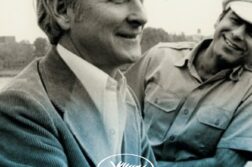Talk about invasion of privacy.
Sure, they thought they were doing the right thing, that I would be happier about myself later on.
They thought this was going to be healthier for me. As if I’d never learn how to pull my foreskin back in the shower to be sure it was a clean as all the rest of me.
They thought I’d feel scarred for life—if I compared my inadequate penis with my father’s huge one. That in my life this would shake me, that later in my life I would not be able to rise to the occasion.
So, they went right ahead, without a thought about my own choices.
Snip, snip!
Of course, I don’t have any memory of the event, so I don’t know if I was given something to ease the pain. A nip of good aged bourbon, say—or did the damned pediatrician do that to ease his discomfort? So, of course I let out a lusty cry.
And with that, I joined the legions of circumcised guys.
I don’t know what my life would be like had this not been done. But I have read, and believe, that my sex life would have been different, better. It stands to reason that with a foreskin, there would be less rubbing of the sensitive skin at the tip of my member against the fabric of my briefs. And, surely, less rubbing day in and day out, year in and year out, would mean that when in the act, I would enjoy greater sensitivity.
I do know this: in the act, a talented man can give extra pleasure by playing around with another guy’s foreskin and the sensitive places it reveals. A tongue is a great toy, and lips do a fine job of pulling it back to give access for the tip of the tongue.
I decided to do some research. I wanted to know why circumcision is such a common practice in societies like my own which have such sophisticated, widely-available medical services.
In sub-Saharan Africa, male circumcision is an important part of reducing the risk of HIV infection. However, in the West we have PrEP and other means of assuring we will avoid AIDS and other sexually transmitted diseases. Yet many of us are still circumcised. Of course, some cultures and faiths, such Jews and Muslims, view circumcision as a necessary procedure, and I honor that. But it does not apply to me.
Not long after setting things going in Genesis, the Lord laid down the order: “This is my covenant, which you shall keep between me and you, and thy seed after thee; Every man child among you shall be circumcised. And ye shall circumcise the flesh of your foreskin, and it shall be a token of the covenant betwitx me ane you.”
In total, an estimated one-third of men worldwide are “cut.”
Circumcision pre-dates recorded history. There is no firm consensus as to how it came to be practiced worldwide. Just where it began and why it spread are lost to in the drifting sands of time.
Among the ancient the Egyptians, the procedure appears to have been endowed with great honor and importance as a rite of passage into adulthood, performed in a public ceremony emphasizing the continuation of family generations and fertility. It may have been a mark of distinction for the elite. In the Egyptian Book of the Dead, the sun god Ra is depicted circumcising himself.
Circumcision features prominently in the Hebrew Bible, too; it was adopted to distinguish Jews from Gentiles. The narrative in Genesis, chapter 17 describes the circumcision of Abraham and his relatives and slaves. In the same chapter, Abraham’s descendants are commanded to circumcise their sons on the eighth day of life as part of a covenant with God.
On the other hand, the ancient Greeks abhorred circumcision, making life for circumcised Jews living among them very difficult. Antiochus Epiphanes outlawed circumcision—a foreskin was required for athletes participating in the Olympic Games, which were played nude. The Romans considered an intact foreskin a central part of male beauty.
A narrative in the Gospel of Luke makes a brief mention of the circumcision of Jesus, but the subject of physical circumcision itself is not part of the received teachings of Jesus. Paul the Apostle reinterpreted circumcision as a spiritual concept, arguing the physical one to be unnecessary for Gentile converts to Christianity. The teaching that physical circumcision was unnecessary for membership in a divine covenant was instrumental in the separation of Christianity from Judaism.
Medical science later got into the act with “experts” justifying this mutilation.
In 1870, an article in Transactions of the American Medical Association, “the operation of circumcision is one which may be practiced for moral reasons; one which may be demanded for hygienic purposes; one which is frequently necessary for pathologic conditions; and finally, one which is unquestionably of prophylactic importance.”
Sigmund Freud, who had his own deep sexual hang-ups, was more brutal, asserting that “circumcision is the symbolical substitute of castration, a punishment which the primeval father dealt his sons long ago out of the fulness of his power.”
Moral sentiment played a role in promoting masturbation as well.
It was not only sinful, but also physically and mentally unhealthy, stimulating the foreskin to produce the host of maladies of which it was suspected. All About the Baby, a popular parenting book of the 1890s, recommended infant circumcision for precisely this purpose.
James Baldwin writes wonderfully of sexual love, giving context to the facts and myths around circumcision. “To be sensual, I think, is to respect and rejoice in the force of life itself, in the force of life, and to be present in all that one does, from the effort of loving to the breaking of bread. The person who distrusts himself has no touchstone for reality—for this touchstone can be only oneself. Such a person imposes between himself and reality nothing less than a labyrinth of attitudes.”
Who want to be denied such an experience?
If I had a son, I would not allow him to be circumcised as an infant. It should be a choice; one he can make for himself later on.
Doug Scott has published two books and is releasing an anthology in the fall about LGBT sex. He lives in Palm Springs.






Discussion1 Comment
Circumcision reduces HIV transmission by 60%, relative to the uncut men! “…if we had a vaccine that had the 60% efficacy it would be licensed tomorrow”,” said Dr Anthony Fauci at the 2012 AIDS Conference. AIDS2020 is going on as we speak virtually. I would wager that those guys in your generation who are cut and are exclusive tops were at a better position when HIV broke out, compared to the uncut ones. I am not aware of circumcision being compelled in the U.S. or any Western country. It is definately not compulsory as part of HIV prevention in sub-Saharan Africa. And by the way, we also have PrEP here, in Africa. The existence of PrEP does not invalidate circumcision, which also reduces the risk of HPV transmission. If there were to be another big STI pandemic, the cut guys again would probably be better off.